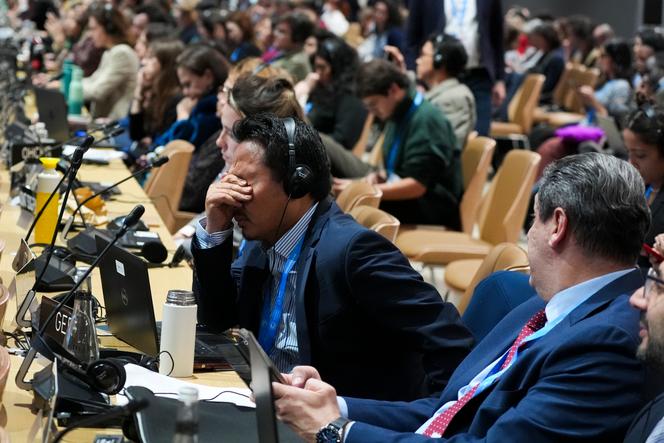


Are the COPs still useful? Year after year, the question comes up again and again, as these major climate meetings are accused of perpetuating inaction while serving as a greenwashing operation for the host country. The 29th United Nations Climate Conference (COP29) has not escaped criticism. It ended on Sunday, November 24 in Baku, Azerbaijan, with an agreement far removed from the climate emergency, as 2024 will rank as the hottest year on record.
"The process produces a result where everyone is unhappy," said Tosi Mpanu-Mpanu, climate negotiator for the Democratic Republic of Congo for the past 15 years. He condemns the "schizophrenic" nature of climate conferences, where exhausted negotiators end up accepting a take-it-or-leave-it decision after a day or two of extended talks. "We tie our hands and then, at the beginning of the following year, we set about unraveling everything," he said.
Logic was pushed to the limit at this year's event. The president waited until the official closing ceremony on November 22, after two weeks of negotiations, to put on the table a first quantified target for financial aid to developing countries, the centerpiece of the conference. This hard-fought agreement was immediately challenged by a number of Southern countries, including India, Cuba, Bolivia and Nigeria. This reinforced calls for boycotts of the COPs, which have been increasing for some time. In Baku, Papua New Guinea adopted an empty chair policy, a first for any country.
A majority of countries and observers nevertheless advocate participation in these conferences, imperfect though they may be. In addition to keeping multilateralism and the climate at the top of the political agenda, "COPs are the only place where the world comes back every year to look in the mirror and ask itself if it is doing enough," said Alden Meyer, an expert at the E3G think-tank, who has been following the process since it began in 1992.
The COPs are also the only forum that gives a voice to all countries, especially the most vulnerable, unlike others reserved for the major powers, such as the G20. "We shouldn't expect too much from them, however, as they only reflect national decisions," said Meyer. "And no UN climate process can force a country to do something it doesn't want to do, or sanction it if it fails to keep its promises."
If climate conferences can't be replaced, how can they be improved? In an open letter, addressed on November 15 to countries and the United Nations (UN), the Club of Rome and high-level figures (including a former UN secretary general and a former Irish president) call for a "fundamental overhaul of the COP" in order to preserve a "livable future" for the majority of humans. These experts propose first of all to review the process for allocating COP presidencies. They call for "strict eligibility criteria" to "exclude" countries that do not support the transition away from fossil fuels, the primary cause of global warming.
You have 64% of this article left to read. The rest is for subscribers only.
